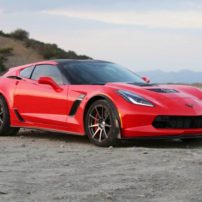Brands Struggle with Conquest Sale Retention
Dodge, Ram, Audi, Mazda, GMC, Volkswagen, Acura and Mercedes-Benz are all in the heat of a “nomad retention challenge” in the United States, according to a report from S&P Global Mobility. This means these eight brands face the challenge of keeping their conquest customers from being “one and done” and going elsewhere after one purchase, the research firm said.
Toyota Tacoma Wins Midsize Truck Best Buy Award Again
The past two years have seen many traditions break in the automotive industry. But some truths are so reliable that even a global pandemic and a worldwide shortage of microchips can’t shake them. For instance, the Toyota Tacoma has won Kelley Blue Book’s Best Buy Award in the midsize truck class for a third consecutive year recently. That means Kelley Blue Book editors drove every midsize truck for sale in the United States, ran the numbers on their cost of ownership and concluded that the smart move is to buy a Tacoma.
Hyundai Maintains Lead in Customer Loyalty
Hyundai Motor America has been ranked first in customer loyalty in the automotive industry for the 14th consecutive year, according to the Brand Keys Customer Loyalty Engagement Index (CLEI). Hyundai is also in the top 20 among all brands and has finished inside the top 20 every year since 2017, based on the Brand Keys Brand Loyalty Leaders survey. Hyundai is the only automotive company awarded a spot in the top 20 in 2023.
“We try to ensure that our customers have the best experiences possible, from shopping to repurchase, by leveraging our excellent technologies and class-leading service programs at every step of the journey,” said Angela Zepeda, Hyundai Motor America chief marketing officer.
“Because expectations are more emotionally based today, brands have a difficult time identifying and tracking them,” said Robert Passikoff, Brand Keys founder and president. “But there are ‘hero’ brands that pretty much own the No. 1 spot in their categories long enough to earn a ‘perennial loyalty’ designation. Hyundai is one of those brands.”
For 2023, Brand Keys interviewed 113,550 consumers, 16 to 65 years of age, drawn from the nine U.S. Census regions. Respondents self-selected categories in which they are consumers and brands for which they are customers, assessing 987 brands in 110 categories.
Volvo Going All-Electric Globally
Volvo Cars will launch a new battery-powered model each year as it strives toward becoming an electric-only car maker globally by 2030. The Swedish automaker has pivoted to an online-first sales model for its EVs and was considering a new distribution model before the pandemic. It’s still early in the EV revolution, but the new technology is already disrupting the retail side of the business. Automakers are turning to their retailers to help offset the sky-high development cost of these next-generation vehicles.
Porsche Looks to Google for Connectivity
Porsche is considering fully integrating Google software into its car cockpit, a source close to the company said recently, marking a shift in strategy for the newly stock-market-listed automaker. The deal — which is only being considered for the Porsche brand, not the Volkswagen Group — would provide Porsche customers access to Google applications like Google Maps and Google Assistant without needing to connect the car to an Android phone.
GM Invests in V8s, Shelves a Battery Plant
General Motors (GM) has shelved, for now, plans to build a fourth U.S. EV battery plant with partner LG Energy Solutions. News of the decision to slow investment in EV battery production broke the same day that GM announced plans to invest $854 million to retool plants in Flint, Michigan; New York state and Ohio to build the sixth generation of the automaker’s small block V8 — the latest iteration of a combustion engine family that goes back to the 1950s.
GM isn’t saying why, but the decisions point to several factors:
- GM makes most of its global profits from sales of V8-powered pickup trucks and SUVs in the United States. Keeping that franchise going is critical as fuel economy and emissions standards tighten over the next decade.
- The outlook for electric vehicle sales in the United States over the next decade is uncertain. Many forecasters and analysts predict EV demand will fall short of capacity over the next several years. The price war Tesla started could be a preview of coming attractions as scores of new EV models fight for mind and market share.
- GM and LG already have three U.S. battery factories to launch — and those launches so far are going more slowly than GM anticipated. As GM reviews spending heading into a possible recession, it seems prudent to put off another $2 billion or more into battery investment until the first three plants are shaken down.
- Battery technology is moving fast. GM’s first three Ultium battery plants are designed to produce nickel-cobalt batteries. But Ford and other manufacturers are turning to less costly lithium-iron chemistries. Solid-state batteries are supposed to be just around the corner and GM is investing in startups exploring other alternative chemistries.
Meanwhile, a Ford Motor Co. battery plant investment sought by Michigan and Virginia that would have created roughly 2,500 jobs was rejected by Virginia Gov. Glenn Youngkin, a potential Republican candidate for president, over his objections to the involvement of a Chinese partner.
Dealers Face EV Hurdle
As dealers get ready for a surge of older electric vehicles arriving in the used-vehicle market in coming years, one challenge many of them face now is simply that there isn’t enough supply to meet current consumer demand. With more automakers charting electric paths, dealers are readying their sales and service operations to handle the influx of used EVs that will eventually arrive when all those new models age and permeate auction lanes or return to dealerships as trade-ins.




















Comments